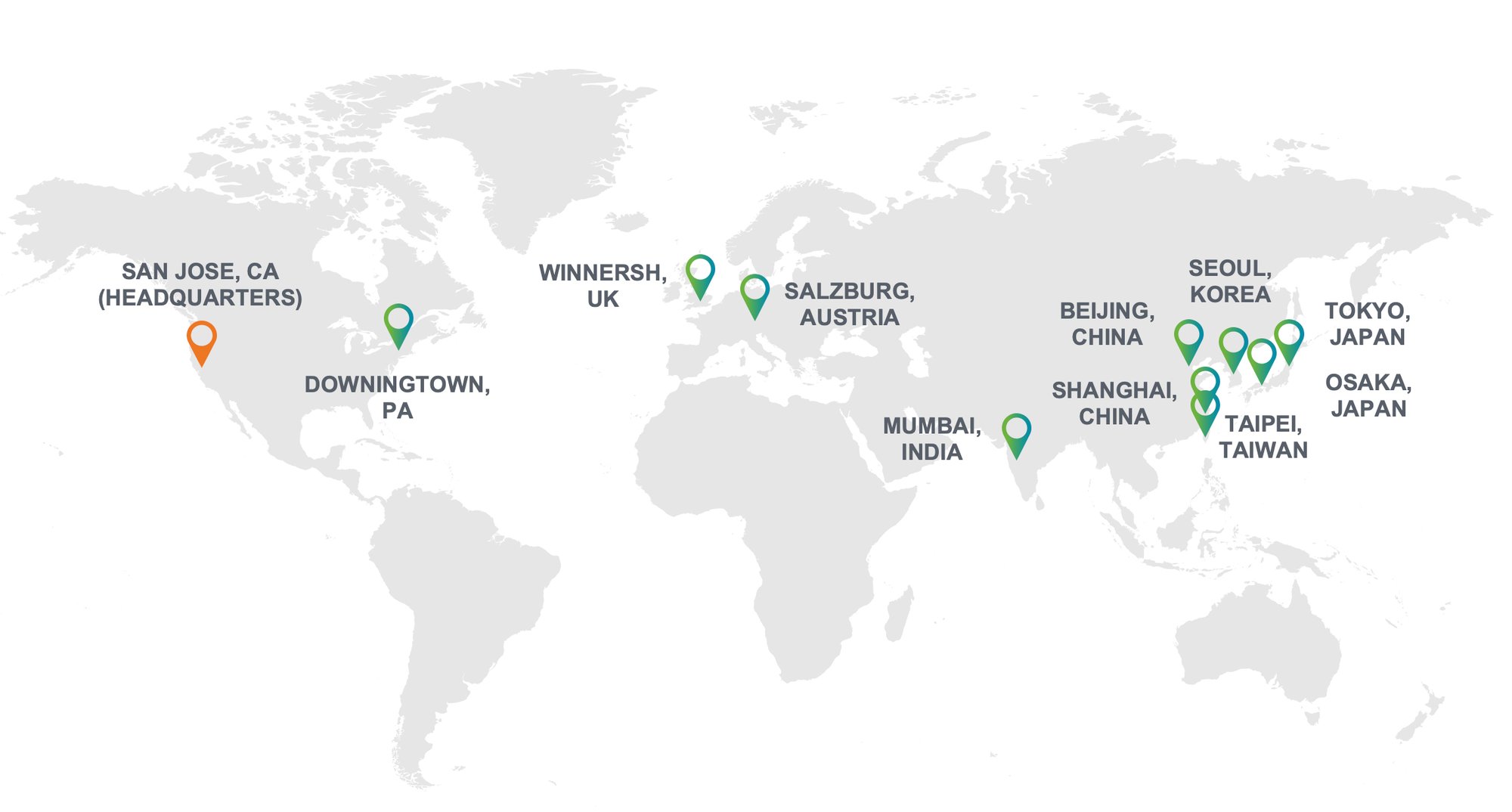Tomorrow's Therapeutics, Today.
Experience unparalleled precision and speed in vaccine and drug development with our CRISPR technology.
Experience unparalleled precision and speed in vaccine and drug development with our CRISPR technology.
The transformative power of CRISPR opens a gateway to groundbreaking advancements in vaccine and drug development. Originating from the natural defense systems of bacteria, this sophisticated technology has been refined to make precise, targeted edits in the complex structure of DNA. The outcome? A pioneering tool that is reshaping the future of medical therapeutics and expanding the horizons of biological knowledge.
At the heart of this scientific revolution is the meticulous art of genetic tailoring. Picture the delicate work of a master jeweler, but applied to DNA, where each adjustment in genetic sequences is made with exceptional precision. Envision DNA being delicately modified to not only correct genetic disorders but also to pave the way for novel vaccines and innovative drug therapies. From tackling inherited diseases to enhancing the efficacy of medical treatments, CRISPR is setting the stage for monumental breakthroughs in healthcare.
Your team of visionary scientists harnesses the power of CRISPR, navigating the intricate genetic landscape to perform edits with unmatched accuracy. This is more than science; it's the fusion of ambition and precision, where each genetic tweak has the potential to bring about profound transformations in health and disease treatment. Experience the dawn of an era where genetic limitations are overcome with customized, effective solutions.
Embark on a journey that bridges the microscopic world of genes with the monumental realm of human health. Step into a realm where science directs the course and CRISPR serves as the key tool. Together, let's explore a path where once unimaginable health solutions become reality, heralding a world transformed by the meticulous precision of CRISPR in vaccine and drug development.
Our advanced screening solutions ensure that each modification is precisely targeted, reducing off-target effects and enhancing the overall success rate of gene editing projects.
With our instruments, CRISPR workflows become more efficient and less labor-intensive. Our technology simplifies identifying and isolating successfully edited cells, significantly reducing the time from concept to application.
Molecular Devices provides high-throughput screening capabilities integral for large-scale CRISPR projects. Our Clone Screening instruments are designed to handle vast arrays of samples efficiently, making them ideal for extensive research projects and industrial applications.
Whether you're in academia, a biotech startup, or part of a pharmaceutical R&D team, our instruments cater to your unique needs. The combination of CRISPR with our instruments ensures a smoother, faster, and more accurate development process. From creating new vaccines to developing novel therapeutic drugs, our technology is here to accelerate your journey.
 Identifying the best method for delivering the CRISPR-Cas9 system into the cells of interest is the first step in the gene editing workflow. When considering which transfection method to use, transfer efficiency and subsequent cell viability are important factors. Transfection efficiency optimization, construct design, delivery method assessment, and host line selection are some important factors to be considered.
Identifying the best method for delivering the CRISPR-Cas9 system into the cells of interest is the first step in the gene editing workflow. When considering which transfection method to use, transfer efficiency and subsequent cell viability are important factors. Transfection efficiency optimization, construct design, delivery method assessment, and host line selection are some important factors to be considered.
 Creating a custom gene-modified cell line starts with evaluating the transfected cell pool. Using the CloneSelect® Imager, effectively screen the edited from the unedited using different selection methods like antibiotic-based, fluorescent protein reporter-based, antibody-tagged cell sorting, and others. The successfully transfected/screened cell pool is then expanded for further monoclonal cell line development.
Creating a custom gene-modified cell line starts with evaluating the transfected cell pool. Using the CloneSelect® Imager, effectively screen the edited from the unedited using different selection methods like antibiotic-based, fluorescent protein reporter-based, antibody-tagged cell sorting, and others. The successfully transfected/screened cell pool is then expanded for further monoclonal cell line development.
 The DispenCell Single-Cell Dispenser and its dedicated sensing tips can be used to distribute single cells into wells gently and efficiently. After dispensing, the DispenSoft software performs single-cell quality control post-processing cost-effectively.
The DispenCell Single-Cell Dispenser and its dedicated sensing tips can be used to distribute single cells into wells gently and efficiently. After dispensing, the DispenSoft software performs single-cell quality control post-processing cost-effectively.
 Documentation of monoclonality (a regulatory metric for therapeutic cell lines) is typically image-based, whereby an image of a single cell is recorded and included in regulatory filings. Many researchers now routinely use imaging systems, such as the CloneSelect Imager, to verify monoclonality at day 0, and monitor cell growth in cell culture media.
Documentation of monoclonality (a regulatory metric for therapeutic cell lines) is typically image-based, whereby an image of a single cell is recorded and included in regulatory filings. Many researchers now routinely use imaging systems, such as the CloneSelect Imager, to verify monoclonality at day 0, and monitor cell growth in cell culture media.
 Our SpectraMax i3x Multi-Mode Microplate Reader with MiniMax 300 Imaging Cytometer can be used to assess transfection efficiency, monitor cell growth, quantify DNA and protein, and validate CRISPR/Cas9 edits through ScanLater Western Blot analysis. High-quality images of autophagosomes can be acquired using the ImageXpress Micro Confocal System while the MetaXpress HCI software can identify and quantitate individual autophagosomes from every cell, allowing us to analyze phenotypic changes occurring from the CRISPR/Cas9 gene edits.
Our SpectraMax i3x Multi-Mode Microplate Reader with MiniMax 300 Imaging Cytometer can be used to assess transfection efficiency, monitor cell growth, quantify DNA and protein, and validate CRISPR/Cas9 edits through ScanLater Western Blot analysis. High-quality images of autophagosomes can be acquired using the ImageXpress Micro Confocal System while the MetaXpress HCI software can identify and quantitate individual autophagosomes from every cell, allowing us to analyze phenotypic changes occurring from the CRISPR/Cas9 gene edits.

The DispenCell Single-Cell Dispenser is highly suitable for CRISPR screening workflows. It enables the precise dispensing of individual cells, facilitating the isolation of cells with desired genetic modifications induced by CRISPR-Cas9 or other gene editing techniques. This allows for efficient screening and characterization of gene-edited cell populations.
The new CloneSelect Imager Florescence (CSI-FL) provides monoclonality Day0 assurance after single-cell printing, transfection efficiency, cell confluency, and multichannel fluorescence screening data to validate gene editing efficacy through shorter tracking times, low risk of over-passaging, and robotics.





*Price, time to deliver, and specifications will vary based on mutually agreed technical requirements. Solution requirements may cause adjustment to standard performance.
